Saturday, October 13th 2018

New PT Data: i9-9900K is 66% Pricier While Being Just 12% Faster than 2700X at Gaming
Principled Technologies (PT), which Intel paid to obtain some very outrageous test results for its Core i9-9900K eight-core processor launch event test-results, revised its benchmark data by improving its testing methodology partially. Initial tests by the outfit comparing Core i9-9900K to the Ryzen 7 2700X and Ryzen Threadripper 2950X and 2990WX, sprung up false and misleading results because PT tested the AMD chip with half its cores effectively disabled, and crippled its memory controller with an extremely sub-optimal memory configuration (4-module + dual-rank clocked high, leaving the motherboard to significantly loosen up timings).
The original testing provided us with such gems as the i9-9900K "being up to 50 percent faster than 2700X at gaming." As part of its revised testing, while Principled Technologies corrected half its rookie-mistakes, by running the 2700X in the default "Creator Mode" that enables all 8 cores; it didn't correct the sub-optimal memory. Despite this, the data shows gaming performance percentage-differences between the i9-9900K and the 2700X narrow down to single-digit or around 12.39 percent on average, seldom crossing 20 percent. This is a significant departure from the earlier testing, which skewed the average on the basis of >40% differences in some games, due to half the cores being effectively disabled on the 2700X. The bottom-line of PT's new data is this: the Core i9-9900K is roughly 12 percent faster than the Ryzen 7 2700X at gaming, while being a whopping 66% pricier ($319 vs. $530 average online prices).This whopping 12.3% gap between the i9-9900K and 2700X could narrow further to single-digit percentages if the 2700X is tested with an optimal memory configuration, such as single-rank 2-module dual-channel, with memory timings of around 14-14-14-34, even if the memory clock remains at DDR4-2933 MHz.
Intel responded to these "triumphant" new numbers with the following statement:
The entire testing data follows:
Source:
Principled Technologies (PDF)
The original testing provided us with such gems as the i9-9900K "being up to 50 percent faster than 2700X at gaming." As part of its revised testing, while Principled Technologies corrected half its rookie-mistakes, by running the 2700X in the default "Creator Mode" that enables all 8 cores; it didn't correct the sub-optimal memory. Despite this, the data shows gaming performance percentage-differences between the i9-9900K and the 2700X narrow down to single-digit or around 12.39 percent on average, seldom crossing 20 percent. This is a significant departure from the earlier testing, which skewed the average on the basis of >40% differences in some games, due to half the cores being effectively disabled on the 2700X. The bottom-line of PT's new data is this: the Core i9-9900K is roughly 12 percent faster than the Ryzen 7 2700X at gaming, while being a whopping 66% pricier ($319 vs. $530 average online prices).This whopping 12.3% gap between the i9-9900K and 2700X could narrow further to single-digit percentages if the 2700X is tested with an optimal memory configuration, such as single-rank 2-module dual-channel, with memory timings of around 14-14-14-34, even if the memory clock remains at DDR4-2933 MHz.
Intel responded to these "triumphant" new numbers with the following statement:
Given the feedback from the tech community, we are pleased that Principled Technologies ran additional tests. They've now published these results along with even more detail on the configurations used and the rationale. The results continue to show that the 9th Gen Intel Core i9-9900K is the world's best gaming processor. We are thankful to Principled Technologies' time and transparency throughout the process. We always appreciate feedback from the tech community and are looking forward to comprehensive third party reviews coming out on October 19.The media never disputed the possibility of i9-9900K being faster than the 2700X. It did, however, call out the bovine defecation peddled as "performance advantage data."
The entire testing data follows:




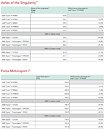
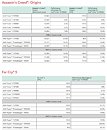
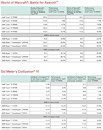



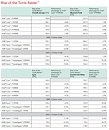
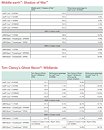

322 Comments on New PT Data: i9-9900K is 66% Pricier While Being Just 12% Faster than 2700X at Gaming
At which point you are no longer looking at a $530 CPU but a $650-700 one.
One of the first thing people buys Intel K-version CPUs is to go in the UEFI and try to overclock it to 5Ghz+, that is like the biggest advantage Intel has, sheer clock speeds.
Not to mention run all the stress tests to make sure the OC is stable.
You can spend the leftover money for a better GPU.Great point.
Hell, even that, they are so unconfident in doing all that advertising, torning between all they’re flushing, resulting in a complete mess about “what their product really is”
-and you know whats the most pretty in all this? THEY ARE NOT PREMIUM. They are not made from better materials than other stuff in semicond. market, they wont last longer, they dont have premium options. Hell, do Intel and ngreedia know what does PREMIUM means??? If they’ll sell their CPU’s in some Ferrari kind of shop, with cup of coffee and a manager kissing ur arse just to buy their stuff - that I will call premium over AMD. Nit just silly ~10% perfomance gain.
Rich people pay more for better service or good - and NEVER for the same stuff available for every, just in order to show they have more money.
All in all, PC gaming is a leisure - and it shouldnt be considered as a major part of your expenses. This price hike tactics just initially false, from very beginning
In my eyes, all computers are fairly cheap. They used to be $5000+. And they weren't even workstation class.
Ryzen at 4.2ghz all core vs Intel at 5.3 is a bit more than 12% I think.
And that's going with 8700k levels of OC. It's entirely possible the 9700/9900 can do 5.5.
I don't think anybody doubts that the 2700X has a much higher price to performance ratio.
Also there are varience between each core in the same chip, you you might be somewhat limted by how far the worse core can go.
Yes you can OC each core individually but that is an awful lot of work for dubious gains.
So it remains to be seen how well these chips actually OC.
As i replied in that same topic, there's premium, and theres "premiumed" premium ...
@ the very least, these "new performance numbers" are much more inline with what we'd expect before that whole "PT botched job".